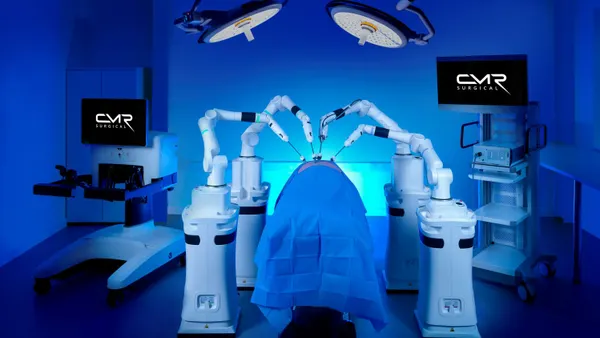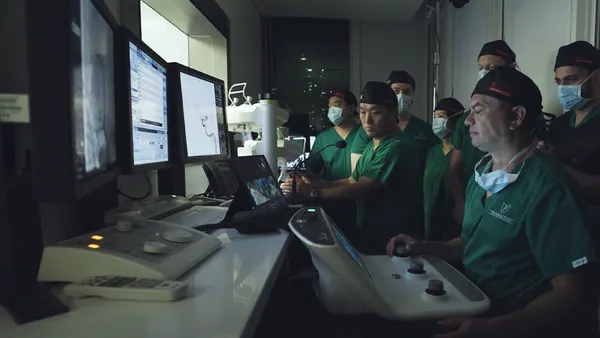Dive Brief:
- Pulsed field ablation (PFA) technologies from Boston Scientific and Medtronic will quickly gain market share in the U.S., according to analysts at BTIG.
- PFA is an emerging alternative to the extreme heating or cooling used today to block abnormal heartbeats and treat atrial fibrillation. Data suggest PFA may be safer and faster to perform than cryoablation and radiofrequency ablation, leading BTIG to forecast “rapid commercial uptake.”
- Boston Scientific and Medtronic have acquired PFA devices in recent years and, based on talks with physicians, the BTIG analysts expect sales of both products to grow quickly once they come to market in the U.S.
Dive Insight:
PFA has emerged as the latest medtech cardiovascular disease battleground. Boston Scientific made its move in 2021, paying $295 million upfront to acquire Farapulse. Medtronic joined the PFA race last year by acquiring Affera in a $925 million deal. Johnson & Johnson also has a PFA device in development.
To better understand the technologies and data, the BTIG analysts held a webinar with Mohit Turagam, a cardiac electrophysiologist and assistant professor of medicine at the Icahn School of Medicine at Mount Sinai Hospital in New York City.
Turagam told the analysts he expects PFA to become the standard of care and plans to incorporate the technology into practice, once approved. If, as BTIG expects, PFA becomes the first choice for ablation to treat atrial fibrillation, the next big question is which company will capture the market. Turagam’s likely preference is shaped by a focus on efficiency.
“He prefers a device that also enables him to quickly turn the room over (faster with conscious sedation). Given these considerations, he believes Boston Scientific's Farapulse will be his first go-to catheter for both paroxysmal and persistent patients,” the analysts wrote in a note to investors.
Turagam also likes Affera’s Sphere-9, which Medtronic acquired last year, “for its focal design and ability to both map and ablate.” With the doctor predicting Sphere-9 will be “part of his toolkit,” the BTIG analysts expect both it and Boston Scientific’s Farapulse to quickly gain market share.
Medtronic recently presented data on another PFA device, PulseSelect. The BTIG analyst note calls the safety profile “impressive,” citing the “zero esophageal complications, no evidence of [pulmonary valve] stenosis and no reported evidence of phrenic nerve injury” as plus points. Turagam, after accounting for differences between the trials, said the results were similar to data from J&J and Boston Scientific.
J&J’s Varipulse is integrated with its Carto mapping system, which Turagam uses for 70% of his first-time procedures. The integration gives J&J an advantage over Boston Scientific, which is still working to add integrated mapping. However, the ability to use Farapulse under conscious sedation, rather than general anesthetic, and discharge patients on the same day leads Turagam to favor Boston Scientific’s device.











